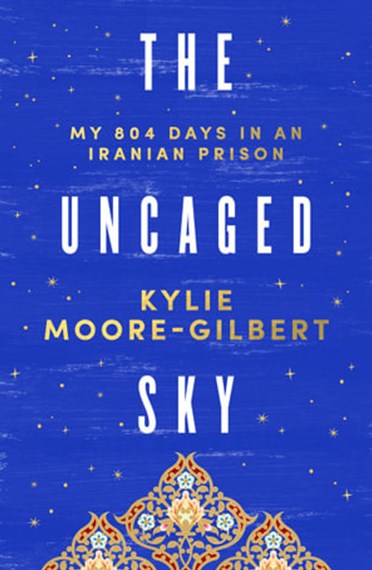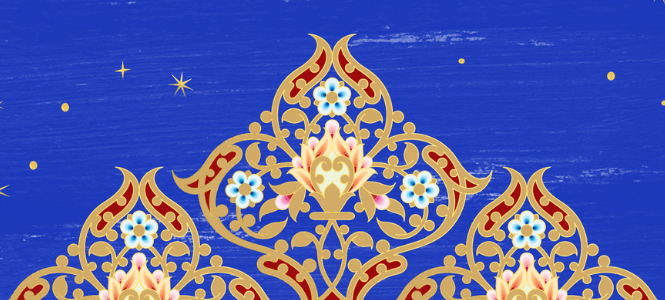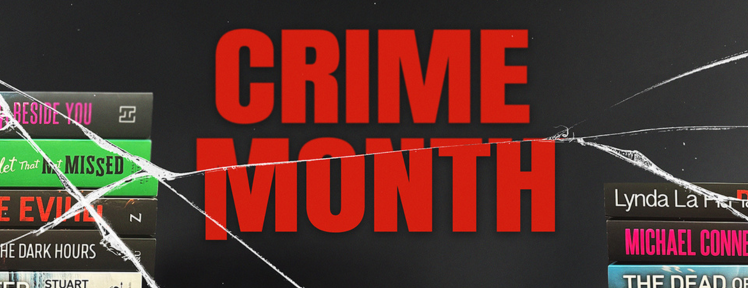The Uncaged Sky is a brilliant and powerful book. It vividly describes an Australian woman’s incarceration in Iran, on spurious espionage charges, and the complex worlds she encountered while detained.
Kylie Moore-Gilbert is an Australian lecturer in Islamic Studies, with a specialist interest in Bahraini Shia, and a dual Australian-British citizen. She lets readers know she agrees with the Iranian Government’s stance on the Shia minority in Bahrain. However, after attending an academic conference in Tehran, she conducts a research interview with a Bahraini- Iranian dual citizen who reports her for suspicious activity and she is detained at the airport by the Islamic Revolutionary Guard Corp (IRGC). Moore-Gilbert takes readers straight into her nightmare. There is limited background information shared about her life but given that the point of this book is her experience from detainment to release, the focused approach ultimately strengthens the work, ridding us of distractions or the temptation to form an early opinion which can be nothing more than a value judgement.
Moore-Gilbert’s moving incredulity that she is being falsely detained is amplified by the frightened trust citizens place in our own governments, and is continuously and skilfully evoked across the book. Being highly educated and sophisticated, even “aware” ultimately offers no protection, either out in the world, or within — at home. Her family and husband are instructed not to go to the media by Australian governmental authorities and are obedient. In rare and desperate calls with her father and, early on, her husband, she pleads with them to tell her story. But they follow the official line that it would make things worse. Moore-Gilbert is sentenced during this harrowing time noting: “In my mind the sentence only served to highlight the uselessness of both the Australian and British Governments”.
‘Being highly educated and sophisticated, even “aware” ultimately offers no protection, either out in the world, or within.’
The IRGC, Moore-Gilbert writes, reports to the Supreme Leader and operates independently of the Iranian government. The ineffectual nature of the Australian diplomatic mission in Iran in terms of offering assistance to her is palpable. The trial process, she pleads, is a sham. Ambassador Biggs stares at his hands, his shoes, he swears vigorous diplomacy is taking place, he promises all that can be done is being done. Confronted by emotion, he requests she treat her captors with respect. Ambassador Lyndall Sachs is appointed later and Moore-Gilbert’s gratitude to her is evident.
Moore-Gilbert notes her naivety in assuming that both the Australian and British governments would have made representations on her behalf and that there was some form of established process for dealing with cases like hers. But 3 months into her incarceration, she is given the opportunity to call the Australian Embassy and gets a recorded message about visas. It is unwise, say her interrogators, to call the British Embassy as things are not good with them. There was nothing else.
It becomes increasingly clear across the course of the book that Moore-Gilbert’s detention and “conviction” is not just generalised paranoia from the IRGC, but part of a strange and horrible global game and that the terms of her release likely lie in some deal. “Listen, in Iran they always trade the foreigners …” says Elena, a fellow detainee, noting later, “They want something for you. It’s not about determining if you’re innocent or guilty, it’s about determining your price”. Ultimately, an Australian government envoy, Nick Warner secures her release in a prisoner swap for Iranians held in Thailand.
‘Within the harsh world of Qarchuk, she documents numerous lives with humane fascination.’
Moore-Gilbert is endlessly compelling when writing about the women in Evin prison and later the public prison Qarchuk. She brings life to her fellow detainees — environmentalists caught up in a “turf war” between the elected President Rouhani and IRGC hardliners, human rights defenders businesswomen whose assets are being eyed off for confiscation, even informers who lob in and out of her cell. Then there are the guards, old and younger women finding a form of feminist independence within Iran via their work with the Revolutionary Guard. Far from being brainwashed, the prison guards had found a niche to live with dignity as well as a rare point of engagement with the secular, via the inmates.
Moore-Gilbert also cleverly weaves the dangers for secular activists into her personal interrogation accounts, and the cruelty and callousness of the IGRC toward their lives and actions. Always self aware, she brilliantly develops over many chapters the “sinister, complicated relationship” with her IRGC case manager and the complex inter-relationships existing among her captors. Through remembered dialogues, she reveals and digests complex notions around religious identity, secularity and nationhood vs citizenship for readers and so illuminates the world. Within the harsh world of Qarchuk, she documents numerous lives with humane fascination.
With moving detail, Moore-Gilbert takes readers to the core of the prisoner’s world, initially at Evin’s 2A and then the unsafe, unclean Qarchuk public prison, with dangers of informers and the struggle to keep the rational brain ahead of the exhausted emotional core. Throughout the book, the conditions in which she and her fellow prisoners are kept, while specific to the IGRC, are an urgent warning that international mechanisms such as the Optional Protocol to the Convention Against Torture and Other Cruel, Inhuman and Degrading Treatment be enshrined in local law rather than languish for decades after signing up. Australian conditions under incarceration particularly for Indigenous Australians, including children, as revealed by the Don Dale and Black Deaths in Custody Royal Commissions, urge action. Equally, the truly devastating experience of political prisoners has been well documented in recent years by Nils Melzer, United Nations Special Rapporteur on Torture and Other Cruel, Inhuman, or Degrading Treatment or Punishment and not confined to physical torment: “Torture is simply the deliberate instrumentalisation of pain and suffering”.
‘Throughout the book, her unbreakable intellectual curiosity and her compassion are matchless. She is staunchly herself.’
But this book is Moore-Gilbert’s own story of imprisonment and Kylie resists! She belts out the Amy Winehouse songbook, she climbs on the prison roof and won’t come down, she goes on hunger strikes in solidarity with her fellow political detainees and fights for them when she can, at risk to herself. She teaches herself Farsi and describes her sensory delight in contraband dates and raisins. On receiving her sentence, she declares to the court it is unjust and she will never accept it — and then returns to her fellow detainees and laughs and parties as much as she can in a cell, to their bemusement. She faces solitary confinement — “The fear of being left alone for days inside my own head was greater even than my early fears of physical or sexual assault” — secret terrifying transfers, hopes dashed as promised diplomatic deals falter and what must have been brutal personal losses. She screams Fuck off to the most senior members of the IRGC.
In the epilogue, Kylie updates us on the status of her fellow prisoners. She cares, as should we. Throughout the book, her unbreakable intellectual curiosity and her compassion are matchless. She is staunchly herself — readers everywhere cheer Kylie’s almost indescribable elation when one day some English books turn up and, fearful at the thought of losing the complete Harry Potter, she is suddenly noncommittal to the regular suggestion that she might be persuaded to spy. But she never does, and she never does a deal with her captors.
—The Uncaged Sky by Kylie Moore-Gilbert (Ultimo Press) is out now.

The Uncaged Sky
My 804 days in an Iranian prison
On September 12, 2018 British-Australian academic Kylie Moore-Gilbert was arrested at Tehran Airport by Iran’s feared Islamic Revolutionary Guards. Convicted of espionage in a shadowy trial presided over by Iran’s most notorious judge, Dr Moore-Gilbert was sentenced to 10 years in prison.
Incarcerated in Tehran’s Evin and Qarchak prisons for 804 days, this is the full and gripping account of her harrowing ordeal. Held in a filthy solitary confinement cell for months, and subjected to relentless interrogation, Kylie was...







 What do we know about the Boy Swallows Universe Netflix show?
What do we know about the Boy Swallows Universe Netflix show?  Booktopia’s top thrilling fiction picks for Crime Month
Booktopia’s top thrilling fiction picks for Crime Month  Booktopia’s Top First Nations Book Recommendations for 2023
Booktopia’s Top First Nations Book Recommendations for 2023
Comments
No comments